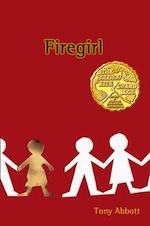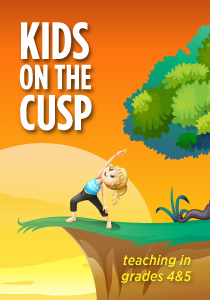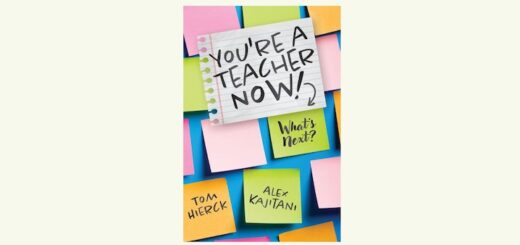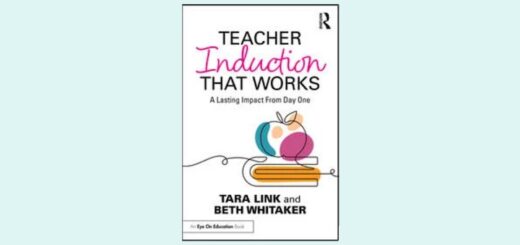My Summer Book Club
A MiddleWeb Blog
by Mary Tarashuk
“It must be so nice to have the summers off,” is a reaction I often get during conversations in late May and throughout the month of June, as the school year is beginning to wind down.
This comment used to stir an immediate and uncomfortable defensiveness somewhere deep within me. Truth be told, there are times it still does. Today my response usually grabs the middle ground, somewhere in between “We work!” and “You’re right!” I concur that it is, in fact ‘nice to have the summers off,’ and continue with a short explanation, the main idea, of my summer plans.
It is nice to have the summer away from school. Many educators don’t enjoy this luxury and work on a year-round teaching schedule. Those of us who have a sizable break from the classroom typically spend the summer months discovering alternate teaching methods, attending professional development seminars, working at summer camps.
It can be fun, of course. I’ve been following a colleague on Facebook as she travels throughout France and England this summer. Now that’s what I call building prior knowledge, developing schema about global cultures (experiences to share with your students in September and throughout the school year).
A few summers ago, another friend and colleague rode his bicycle from the coastline of New Jersey to Oregon, in what was dubbed The Bologna Express. He came to school that fall with a personal slide-show for his students to witness, as they studied the regions of the United States from sea to shining sea. So many teachers use the summer months in so many different ways – some more exciting than others.
My summer project
Towards the end of May, some ideas were formulating in my brain about this summer’s professional development activities, but I hadn’t brought the blur of possibilities into a tight focus. The main idea was still unclear. I imagine this happens to kids too.

I read the story…in two days…in between school and dinner and homework. I couldn’t put it down. That’s my kind of book. The picture of my summer plans began coming into focus…the lens started to adjust.
This summer, because I am staying in North America (and cycling only in my immediate neighborhood), I’ve created a literacy book club. I realize literacy has a broad definition, but I also know that a camera needs focus to take a clear picture, to capture the moment in just the right way. A main idea is a necessity, but the details need to be developed as well.
My details included a book study of Firegirl, a story about Jessica, a seventh grade girl who was severely burned in a tragic accident. Jessica’s story is told from the perspective of Tom, a classmate who, like the other middle-schoolers at Saint Catherine’s, has mixed feelings about his new classmate.
I’ve invited former students (and siblings of former students…former families, if you will) to participate in what I am calling a Summer Book Club and Reading Workshop. The goal, which I couldn’t see at the very beginning, is three-fold. (Teachers need to multi-task if they are going to be truly effective. It’s inherent in the job description, although it isn’t in the handbook.)
One benefit of the club is that I can hone my teaching skills as I attempt to adapt to the Lucy Calkins approach to teaching literacy by working with a small group to use the critical thinking skills that are so essential to becoming literate. Parts of our district’s new effort to build a CCSS Standards based literacy program involves Caulkin’s approach, and includes mini-lessons, lasting five to fifteen minutes, that are succinct and tightly focused on a specific skill.
My hope is this club will help me develop the ability to keep the “teaching time” in check and allow for discussion, interaction, and independent responses, which are other components of this method of instruction. It’s a very new approach for me.
Book club essentials

The kids who are participating are the kids who have come back to visit over the past two or three years, since they left 4T. They are members of families who have stayed in touch. Maura, one of their mothers, actually helped me a great deal in developing the details of the literacy group.
Maura filled me in on swim team scheduling, sleep-away camp, and other middle school summer activities I needed to consider. A month-long program with weekly sessions turned into a more intense, week-long book study. We would meet from 5:00 p.m. to 7:00 p.m. for four sessions (We have Wednesday off). Maura also suggested each child bring a brown-bag dinner to enjoy. We emailed back and forth over a dozen times, discovering this detail or making that tweak. She also served as proofreader for my program description and encouraged me every step of the way. (Here’s my book club flyer.)
The people I get to reconnect with are the second benefit of this summer’s teaching activities. I can develop as a teacher of literacy, and I get to stay in touch with people who have touched my life in a positive way.

So, the main idea has been developed, the pieces are in place, and the teaching portion of my summer has begun. As for next summer? Well, the lesson plans haven’t been written just yet, but I think I’m going to pencil in a trip to Europe…just for fun!
What are some summer activities that you do to help hone your skills as an educator? Do you expand your knowledge base through travel or explore the word in some other way, on or off a bicycle? We’d love for you to share them with us…



































How lucky we are in Westfield to have such a brilliant teacher! Mary “connects” with her students so genuinely. The kids adore her so much that they are happy to participate in an educational summer program. I am thrilled to have my twelve year old develop her critical thinking & writing skills with Mary this summer. My daughter can’t wait to start!
I couldn’t have done it without you, Maura!